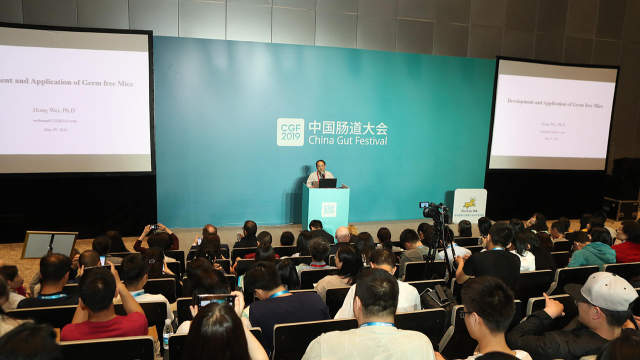The Microbiome and Gastric Cancer
Gastric cancer (GC) is a common cancer in Asian, which arises due to a combination of genetic and environmental factors. Chronic inflammation with Helicobacter pylori is a major risk factor for GC. However, only about 3% of H. pylori-infected people develop GC. Changes in gastric microbial composition are associated with GC, but the role of bacteria other than H. pylori is yet to be established. We seek to characterize the microbial changes associated with histologic stages of gastric tumorigenesis. We performed 16S rRNA gene analysis of gastric mucosal samples from 81 cases including superficial gastritis (SG), atrophic gastritis (AG), intestinal metaplasia (IM) and gastric cancer (GC), to determine mucosal microbiome dysbiosis across stages of GC. We validated the results in mucosal samples of 126 cases from Inner Mongolia, China. Moreover, we identified differences in bacterial interactions across stages of gastric carcinogenesis in addition to microbial compositional changes. The significant enrichments and network centralities suggest potentially important roles of P. stomatis, D. pneumosintes, S. exigua, P. micra and S. anginosus in gastric cancer progression (Gut 2018). To identify non-H. pylori gastric microbes that are associated with inflammation, GA and IM post-treatment of H. pylori infection, we evaluated a total of 295 cases received one-week course omeprazole, amoxicillin and clarithromycin (OAC) while 292 cases received placebo. Subjects underwent endoscopy with biopsy at baseline and after one year. We demonstrated that Oral bacterial genera Peptostreptococcus, Streptococcus, Parvimonas, Prevotella and Porphyromonas are associated with the progression of gastric inflammation, GA and IM following anti-H. pylori therapy. Treatment targeting these bacteria may be prescribed to patients to reduce the risk of developing gastric cancer (unpublished data). The findings may help to provide new insights for the molecular pathogenesis of gastric carcinogenesis, the potential diagnostic bacteria markers for GC and the control of this major malignance.
于君 时长:17:25


